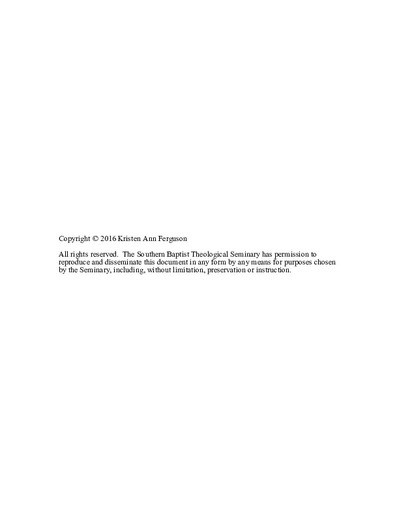Evangelical Faculty Perceptions of Online Learning in Graduate-Level Theological Education
Abstract
Chapter 1 articulates that theological institutions have continued to increase online learning offerings, but the current literature has not taken into account what evangelical faculty think about this growth. The research conducted was an explanatory sequential study to determine current evangelical faculty perceptions, future evangelical faculty perceptions, and a comparison to the existing literature about faculty perception of online learning.
Chapter 2 reviews the literature pertaining to the topic. The following subcategories are addressed: brief overview of evangelical values in theological education and online learning, studies regarding faculty perceptions of online learning in higher education, and studies regarding evangelical faculty perceptions of online learning.
Chapter 3 indicates the methodology that used in the research to determine evangelical faculty perceptions of online learning. The first phase of research was a survey of 459 full members of ETS to acquire their perceptions of the current state as well as the future of online learning in theological education. The second phase of research included two volunteer focus groups designed to acquire further explanation of the survey findings from evangelical faculty.
In chapter 4, the findings of the survey and focus group display a conflict in perceptions as evangelical faculty believe access to theological education to be important, but online learning to be inferior in achieving certain aspects crucial to theological education, such as discipleship, mentoring, community, and leadership characteristics. From these findings, chapter 5 presents conclusions and practical considerations to improve online learning and faculty perceptions of online learning.

